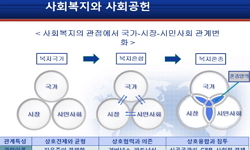This paper explores the preferential tax treatments of social enterprises in corporations or limited liability partnership under the Commercial Act, the main purpose of which is to disburse their earnings & profits for entities trying to accomplish so...
http://chineseinput.net/에서 pinyin(병음)방식으로 중국어를 변환할 수 있습니다.
변환된 중국어를 복사하여 사용하시면 됩니다.
- 中文 을 입력하시려면 zhongwen을 입력하시고 space를누르시면됩니다.
- 北京 을 입력하시려면 beijing을 입력하시고 space를 누르시면 됩니다.
부가정보
다국어 초록 (Multilingual Abstract)
This paper explores the preferential tax treatments of social enterprises in corporations or limited liability partnership under the Commercial Act, the main purpose of which is to disburse their earnings & profits for entities trying to accomplish social purposes. The reviewed results are as follows.
First, tax deferral or exemption treatments on contributions in kind are to be applied to investors in social enterprises.
Second, the income on social enterprise level may as well not be subject to tax.
Third, social enterprises had better not be under the burden of acquisition tax and property tax incurred in the acquisition or hold of business properties.
Fourth, social enterprises don't have to put aside earnings reserve.
Fifth, earnings surplus should not be added to current earnings in the calculation of distributable earnings & profits, but net operating losses should be deducted.
Sixth, the existences of debts to social enterprises and identities of creditors are to be scrutinized.
Seventh, social enterprises need to be empowered to sell certified emission reductions for improving their earings and the related tax issues should be reviewed along with it.
Eighth, dividends from social enterprises may as well not be subject to tax on the investors' level.
Ninth, interests income from social enterprises may as well not be subject to tax on the investors' level as well.
Tenth, social enterprises may adopt the tranching structures for improving senior shareholders' financial returns and the related tax issues should be reviewed along with it.
Eleventh, Government need to grant tax credits or subsidies to investors in case social enterprises go beyond specific level set with respect to accomplishments of social impacts.
Twelfth, non-profit organizations investing in social enterprises are allowed for more generous tax treatments with regard to limitations on inclusion of 'Reserve Funds for Proper Purpose Businesses' in Deductible Expenses.
Thirteenth, Social Stock Exchange needs to be introduced and the related tax issues should be reviewed along with it.
Fourteenth, social purpose expenditures and ordinary expenditures of social enterprises are to be under separate accounting.
Fifteenth, social enterprises in limited liability partnership need to be considered as corporation in offsetting deductions of social purpose expenditures against earnings of social limited liability partnership. The tranching structure thereof may as well be considered as guarantees between partners. But the amount transferred from subordinated partners to senior partners and guarantee fees be deemed to be the contributions to social enterprise, which are deductible in calculating subordinated partners' income.
국문 초록 (Abstract)
본고는 상법상 회사 또는 합자조합의 형태인 사회적 기업 중 사회적 기업을 통하여 창출한 이윤을 ‘사회적 목적의 실현을 주된 목적으로 하는 단체’에 지출하는 사회적 기업을 대상으로 ...
본고는 상법상 회사 또는 합자조합의 형태인 사회적 기업 중 사회적 기업을 통하여 창출한 이윤을 ‘사회적 목적의 실현을 주된 목적으로 하는 단체’에 지출하는 사회적 기업을 대상으로 그 기업의 조세특례에 대하여 검토하였다. 이에 대한 연구결과는 다음과 같다.
(ⅰ)현행 세법상 사회적 기업이 아닌 기업에 대한 조세특례로서 규정된 현물출자시 과세이연특례와 출자액에 대한 소득공제특례를 사회적 기업의 설립 단계에 있어서도 모두 도입하는 것이 타당하다.
(ⅱ) 사회적 기업 단계에서 발생한 소득에 대하여 비과세하는 것이 타당하다.
(ⅲ)자산의 취득 및 보유 단계에서 부담하는 취득세 및 재산세를 면제하는 것이 보다 바람직하다.
(ⅳ)사회적 기업에 있어서 이익준비금의 적립은 의미가 없다.
(ⅴ)배당가능이익의 산정시 당기순이익에 이월이익잉여금을 가산하는 것은 타당하지 않으나, 이월결손금은 배당가능이익에서 공제하고 하는 것은 타당하다.
(ⅵ) 채권의 실재성 및 채권자의 신원을 정확하게 파악할 필요가 있다.
(ⅶ)사회적 기업이 사회적 목적을 위하여 지출한 금액에 상당한 금액에 대하여 탄소배출권 또는 오염배출권을 부여하고 사회적 기업이 이를 매각할 수 있도록 한다면 사회적 기업의 추가적인 수익창출이 가능하게 되어 사회적 기업 투자자의 투자수익률을 제고시킬 수 있는 바, 이 경우에는 탄소배출권 또는 오염배출권을 ‘매입’하는 기업의 경우 해당 ‘매입’ 전액을 손금에 산입할 것인지 여부가 세법상 검토되어야 한다.
(ⅷ)사회적 기업의 주주 단계에서도 배당소득에 대하여 비과세의 특례를 부여하는 것이 타당하다.
(ⅸ)사회적 기업이 발행하는 채권의 이자소득에 대하여 비과세혜택을 부여하는 것이 타당하다.
(ⅹ)배당 또는 잔여재산의 분배에 대하여 후순위인 subordination의 속성을 열후주에 부여하는 방법으로 우선주에 대하여 보다 높은 수익률을 안정적으로 보장할 수도 있을 뿐만 아니라 그 우선주에 대하여서는 의결권을 부여하지 않는 방법을 통하여 두 주주 사이의 이해관계를 조정할 수도 있는 바, 이러한 방안에 대하여서는 다음과 같은 세법상 쟁점이 발생할 수 있다. 첫째, 상속세 및 증여세법, 법인세법 또는 소득세법상 주식의 평가에 있어서 우선주와 열후주를 어떻게 평가하여야 하는지 여부. 둘째, 사회적 기업이 우선주(열후주)를 열후주(우선주)로 전환하는 경우에 이것을 세법상 교환으로 파악할 것인지 아니면 자기주식의 취득과 신주발행으로 파악할 것인지 여부.
(ⅺ)사회적 기업의 사회적 목적 달성 정도를 의미하는 사회적 영향(social impact)을 일정한 수준 이상으로 달성하는 경우 정부가 일반투자자 등에게 직접 보조금을 지급하거나 특별한 세액공제를 제공하는 방법을 통하여 그 투자수익률을 제고하는 것 역시 가능한 것인 바, 이 경우 사회적 목적의 달성에 연동한 보조금의 지급 또는 세액공제는 사회적 기업이 아닌 투자자에게 직접 부여하는 것이 타당하다.
(ⅻ)비영리법인이 수익사업을 운영함에 있어서 일정한 비율 이상을 사회적 기업의 blended return을 위하여 투자할 것을 의무화하거나 유인을 제공하는 방법으로 사회적 기업에 대한 투자를 촉진할 수 있는 바, 이 경우에는 다음과 같은 세법상 쟁점이 검토되어야 한다. 첫째, 법인세법 제29조의 고유목적사업준비금의 손금산입에 있어서 이자 또는 배당소득 등을 제외한 수익사업의 ...
참고문헌 (Reference)
1 久禮義継, "流動化⋅証券化の会計と税務(第4版)" 中央経済社 2008
2 이철송, "회사법강의(제20판)" 박영사 2012
3 이태로, "조세법강의(신정5판)" 박영사 2009
4 Myron S. Scholes, "Taxes and Business Strategy: a planning approach, 4th ed" Peason Prentice Hall 2009
5 Anne Stetson, "Return and Social Impact: Demystifying the Law of Mission Investing by U.S. Foundations" FSG Social Impact Advisors 2008
6 Vince Heaney, "Investing in Social Enterprise: the role of tax incentives" CSFI 2010
1 久禮義継, "流動化⋅証券化の会計と税務(第4版)" 中央経済社 2008
2 이철송, "회사법강의(제20판)" 박영사 2012
3 이태로, "조세법강의(신정5판)" 박영사 2009
4 Myron S. Scholes, "Taxes and Business Strategy: a planning approach, 4th ed" Peason Prentice Hall 2009
5 Anne Stetson, "Return and Social Impact: Demystifying the Law of Mission Investing by U.S. Foundations" FSG Social Impact Advisors 2008
6 Vince Heaney, "Investing in Social Enterprise: the role of tax incentives" CSFI 2010
동일학술지(권/호) 다른 논문
-
- 한국증권법학회
- 김병연
- 2012
- KCI등재
-
EU의 펀드 패스포트(Fund Passport) 규제 동향과 법적 시사점-아시아 펀드 패스포트의 도입 가능성 검토-
- 한국증권법학회
- 이상복
- 2012
- KCI등재
-
- 한국증권법학회
- 김용재
- 2012
- KCI등재
-
- 한국증권법학회
- 안성포
- 2012
- KCI등재
분석정보
인용정보 인용지수 설명보기
학술지 이력
| 연월일 | 이력구분 | 이력상세 | 등재구분 |
|---|---|---|---|
| 2027 | 평가예정 | 재인증평가 신청대상 (재인증) | |
| 2021-01-01 | 평가 | 등재학술지 유지 (재인증) |  |
| 2018-01-01 | 평가 | 등재학술지 유지 (등재유지) |  |
| 2015-03-13 | 학회명변경 | 영문명 : Korean Securities Law Association -> Korea Securities Law Association |  |
| 2015-01-01 | 평가 | 등재학술지 유지 (등재유지) |  |
| 2011-01-01 | 평가 | 등재학술지 유지 (등재유지) |  |
| 2009-01-01 | 평가 | 등재학술지 유지 (등재유지) |  |
| 2006-01-01 | 평가 | 등재학술지 선정 (등재후보2차) |  |
| 2005-01-01 | 평가 | 등재후보 1차 PASS (등재후보1차) |  |
| 2003-01-01 | 평가 | 등재후보학술지 선정 (신규평가) |  |
학술지 인용정보
| 기준연도 | WOS-KCI 통합IF(2년) | KCIF(2년) | KCIF(3년) |
|---|---|---|---|
| 2016 | 1.08 | 1.08 | 1.36 |
| KCIF(4년) | KCIF(5년) | 중심성지수(3년) | 즉시성지수 |
| 1.22 | 1.15 | 1.36 | 0.48 |





 KCI
KCI







